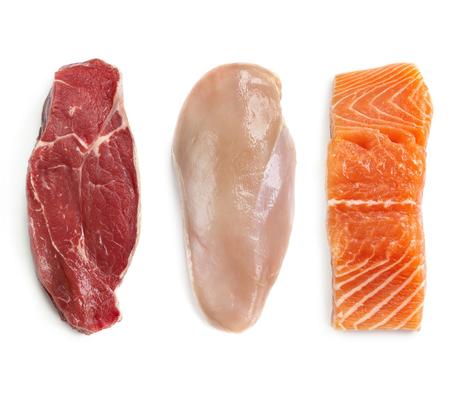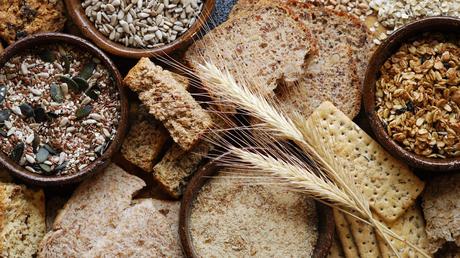Low-carb, high-fat (LCHF) nutrition saw a popular resurgence in 2018 as the ketogenic diet was the most "googled" diet of the year. Probably you've heard about it many times, including from patients.
Of course, low-carb eating isn't new. The whole foods that compose a low-carb diet are similar to what humans have been eating for thousands of years. The recent popularity of low-carb diets, however, has come with a new scientific recognition of their multitude of health benefits.
Scientific studies of varying quality and duration show low-carb diets (generally less that 100 grams of carbohydrates per day) and ketogenic diets (less than 20 grams of carbohydrates per day) provide numerous health benefits including:
Unfortunately, no matter how popular they may be, and despite the numerous health benefits identified in the scientific literature, many physicians continue to consider low-carb and ketogenic diets unhealthy and dangerous. Why is there such a deep disconnect? The short answer is a misunderstanding of the science of dietary fat and an even greater misunderstanding of the potential benefits and risks of low-carb diets.
This guide will help explain the science surrounding low-carb, high-fat diets. If you are a healthcare practitioner, this guide will hopefully help you reexamine the risk/benefit balance of low-carb diets.
If you are not a healthcare practitioner, this guide may be able to help you prepare for the most common questions from healthcare providers. Your own experiences with a low-carb diet plus this guide can help you educate your doctor about the potential benefits of a low-carb diet.
Below are some common misconceptions about low-carb diets and evidence-based explanations that will help sort fact from fiction:
Misconception 1: Nutritional ketosis is the same as ketoacidosis
Doctors may not have been taught about nutritional ketosis in medical school or residency training. Ketones are typically only mentioned as part of the life-threatening condition called ketoacidosis. Ketoacidosis occurs mostly in people with type 1 diabetes and results from a complete lack of insulin and markedly elevated blood glucose levels. In this setting, ketone levels rise above 10 mmol/L, causing the blood to become more acidic and placing the individual at tremendous risk.
This, however, is completely different from nutritional ketosis where the blood ketone levels usually range from 0.5-4 mmol/L and are accompanied by adequate basal insulin levels and low blood glucose. While there are very rare reports of ketoacidosis in patients with type 2 diabetes eating low-carb diets and taking SGLT-2 inhibitors (diabetes medicines under the trade names Jardiance, Invokana, and others), nutritional ketosis and ketoacidosis are as different as could possibly be, and the former has practically no health risk. This basic physiological difference is something every doctor should understand. A fear of nutritional ketosis should not deter clinicians from recommending a low-carb or ketogenic lifestyle.
Misconception 2: Low-carb diets may deliver short term weight loss, but at the cost of increasing risk of heart disease
As low-carb eating has increased in popularity, paradoxically there has also been a rise in studies claiming low-carb diets increase the risk of dying prematurely. While news headlines promote these studies, a closer look shows they do not reach meaningful conclusions and do not apply to well-formulated LCHF eating.
For example, a 2013 review of 17 studies claimed there was a higher risk of death for those who ate low carb, and a 2018 observational study suggested the same. How did these studies define low carb? As less than 40% of calories from carbs. For a 2,000 calorie diet, 40% is 200 grams of carbs. While that is significantly less than the standard American diet containing anywhere from 250-400 grams of carbs, it is still a far cry from the less than 20-100 grams of daily carbs that define low-carb and ketogenic diets.
In addition, there was no control for the quality of carbs. If a person is eating 200 grams of carbohydrates per day, there is plenty of room for refined and processed carbohydrate-containing foods. On a low-carb diet, carbohydrate calories come almost exclusively from vegetables and nuts, not from grains, added sugars, or processed food. None of the aforementioned studies controlled for the quality of carbohydrate, therefore these studies do not apply to well-formulated low-carb or ketogenic diets.
These observational studies also suffer from healthy user bias. During the 1980s and 1990s, public health messages told us to avoid fat and consume more carbohydrates. The individuals who were eating 40% carbs and 40% fat in these studies -in other words, not following the dietary advice of the time - were also more likely to ignore other public health messages and to smoke, not exercise, and be overweight. It is impossible for an observational study to account for these confounding variables, thus making the data far less useful.
Last, observational studies can only provide hypotheses; they do not show cause-effect relationships. They can suggest the need for better studies to be done to evaluate a potential association, but the low hazard ratios (less than 2.0) found in these studies are more likely to be a result of statistical noise than a true cause and effect association.
In conclusion, there are no moderate- or high-quality studies demonstrating that eating a whole-food, LCHF diet results in an increased risk of heart disease or early death.
Misconception 3: The amounts of fat allowed in an LCHF diet will raise LDL cholesterol levels
This turns out to not be true for the vast majority of individuals following a low-carb diet. Most of the studies show no significant change in LDL. Instead, studies consistently show the potentially beneficial effects of raising HDL, lowering triglycerides, and reducing more atherogenic small, dense LDL particles. In fact, studies looking at the 10-year ASCVD risk calculation demonstrate a decreased overall cardiovascular risk on LCHF diets.
There is a small subset of people, termed hyper-responders, whose LDL increases significantly on a LCHF diet. It is not known exactly how big this population is, but it is estimated to be around 25% of those who follow a low-carb diet. Although most medical practitioners immediately assume this is harmful, the evidence is inconclusive.
Elevated LDL in people eating low-carb diets likely occurs for different physiological reasons than in those eating low-fat or standard American diets. While studies have shown an association with increased risk in the latter situation, the same is not true for those following a LCHF lifestyle. In addition, increased LDL on a LCHF diet almost always occurs with a reduction of small dense LDL, reversal of insulin resistance, decrease in blood pressure, increase in HDL, and decrease in triglycerides. This raises the question: Does elevated LDL have any potential pathological concern given the other cumulative beneficial effects?
While the answer to this is not completely known, it is important to look at a patient's cardiovascular risk as a whole and interpret any lipid changes within the framework of the individual's overall health profile.
The ACC/AHA cholesterol guidelines state any LDL above 190mg/dl needs to be treated with a statin and a low-fat diet. However, the evidence behind that recommendation did not include the subset of individuals following a well-formulated, LCHF diet.
In conclusion, cardiovascular health comprises much more than just LDL cholesterol. For those on a low-carb diet, the totality of cardiovascular risk factors should be assessed. The physiological changes that take place when on this diet may make elevated LDL less of a concern than in the general population. Until we have long term data that indicates otherwise, these cases deserve a detailed, individual assessment rather than an automatic assumption of harm.

Misconception 4: The excessive amounts of protein consumed on a low-ccarb diet can cause kidney damage, osteoporosis, and heart disease
This persistent myth is wrong on two counts. First, most low-carb diets are not excessively high in protein. Most include about 15-20% of calories from protein, which can range from 60-125 grams of protein per day, well within normal recommended amounts of 10-35% of calories.
Furthermore, there is no evidence to suggest that protein intakes at the levels consumed on a LCHF diet is harmful for people with normal or even moderately decreased kidney function. In fact, low protein intake can lead to decreased renal function. If someone has severe kidney disease already, then a high-protein diet is potentially harmful, so caution regarding a low-carb diet may be warranted in those cases. However, most LCHF and ketogenic diets are not high-protein diets and are likely to be safe for all except those with pre-existing advanced renal failure.
In addition, protein consumption does not lead to compromised bone health; in fact, poor protein intake can contribute to bone loss. The concern that extra protein turns the blood more acidic thus harming our bones has been an unfounded claim not supported by quality evidence as described in more detail here.
Finally, protein intake is not correlated with heart disease risk. As noted previously in the fat and heart disease section, data showing an association between protein intake and heart disease is weak quality nutritional epidemiology data that does not adequately prove a connection. In addition, some studies like the Nurses' Health Study actually demonstrated an inverse relationship between protein intake and risk of heart disease.

Misconception 5: The meat and fat allowed on a low-carb diet increase the risk of cancer
For a detailed evaluation of fat intake and cancer risk, please see the full guides on Diet and Cancer and saturated fats. In brief, the data linking fat to cancer risk is inconsistent, incomplete, and unreliable.
Observational trials that point to an increased risk of colorectal cancer from red meat suffer from the numerous weaknesses of all nutritional epidemiology studies of chronic disease. The relative increased risk in these studies is very small, well below 2.0, making the findings more likely to be due to statistical noise rather than a true cause-effect association. In addition, these studies use unreliable food frequency questionnaires, are subject to healthy user bias, and have many uncontrolled confounding variables.
Despite the weak level of evidence, the World Health Organization classified red meat as "probably" carcinogenic. However, the WHO relied almost exclusively on epidemiology studies and included only three randomized controlled trials in humans, a much stronger level of evidence. This is a crucial point to make since randomized controlled trials show no association between red meat and cancer risk.
In addition, they also appeared to disregard other observational trials showing no association between meat and cancer. Thus the WHO evaluation is incomplete from a medical science standpoint, and the quality of the evidence does not support the strength of their conclusion. For more on the science behind concerns about red meat and cancer, see this guide.
There is likewise a lack of association of fat intake and breast cancer. The Women's Health Initiative (WHI), the largest randomized trial to address this issue, found no association between increased fat intake and increased risk of breast cancer. In addition, a meta-analysis of seven prospective studies including 337,000 women likewise showed no association between fat intake and breast cancer risk.
In sum, the highest quality data suggests there is no causal association between fat intake and increased cancer risk.

Misconception 6: Whole grains are necessary parts of a healthy diet
To begin with, there is no nutritional requirement for carbohydrates. None. We cannot live without essential amino acids and essential fatty acids, but there is no such thing as an essential carbohydrate. It is clear, therefore, that whole grains are not a requirement for survival. But have they been proven to promote health?
Studies have demonstrated that whole grains are associated with better health when compared to refined grains. That is not much of a surprise given the lack of nutritional value and detrimental health effects of refined grains. However, there are no studies comparing whole grains to a grain-free diet composed of whole foods.
Evidence from the so-called Blue Zones, societies where individuals maintain good health into their 90s and 100s much more often than the general population, is also used to support the importance of whole grains. These communities frequently eat a high percentage of fiber and whole grains in their diet. We should recognize, however, that on average their caloric intake is two-thirds that of individuals in most industrialized nations, their food is predominately locally grown and prepared at home, they don't eat fast food or processed foods, they are physically active their whole lives, and they have strong social connections. In addition, these findings aren't based on studies of any kind, They are simple individual observations without real scientific structure. We cannot accurately extrapolate findings from those societies and apply them to contemporary industrialized societies where only 12% of the population is metabolically healthy. The lifestyles of individuals living in contemporary industrialized societies are the opposite of what we commonly ascribe to the Blue Zones. The food that is healthy for Blue Zone inhabitants is not, by definition, healthy for everyone.
As a healthcare provider, ask yourself if the patient you are seeing is eating a diet high in refined grains. If they are, then whole grains may be beneficial. If not, then there is a lack of evidence supporting the health benefits of whole grains.
For more information, see our complete guide on whole grains:

Misconception 7: Low carb diets are deficient in fiber
Low-carb diets are typically low in fiber. In fact, many low-carb and ketogenic diets contain nearly unrestricted amounts of above-ground vegetables such as broccoli, spinach, cauliflower, Brussels sprouts, green beans, bell peppers, zucchini, and more, all of which are high in fiber.
However, even if one chooses to eat a low-fiber, low-carb diet, there is no evidence that this is dangerous. As with whole grains, the majority of evidence in favor of fiber comes from comparing two different high-carbohydrate diets that are either high or low in fiber. Any high-carbohydrate diet that is low in fiber is, by definition, full of highly processed and refined carbohydrates.
There is no question that higher-fiber, less-refined, less-processed carbohydrates are better than the lower-fiber, more-processed, more-refined carbohydrates. However, there is no evidence that fiber is a health requirement or that eating fiber is beneficial compared to a low-carbohydrate diet composed of whole foods.
If a recommendation for more fiber leads to replacing unhealthy processed grains and carbs, then more natural fiber is a step in the right direction. If, however, the aim is to add fiber to a diet already very low in carbohydrates, then we are operating outside the existing scientific knowledge without clear evidence for benefit.
Misconception 8: Fiber is required for a healthy gut microbiome
While it is true that our gut microbiome feeds on starchy fibers, we don't know for certain that we need to feed them in this manner. For instance, our gut flora digest those starches into butyrate, a short chain fatty acid. Butyrate is structurally similar to betahydroxybutyrate (BHB), the main ketone body produced in nutritional ketosis. Some suggest that BHB serves the same role as butyrate in protecting the intestinal lining and making butyrate production from gut microbes unnecessary.
In addition, studies claiming altered gut flora from low-carb diets suffer from the same poor definition of low carb (i.e. 40% of calories) described above and do not control for the quality of carbohydrates. The quality of carbohydrates is an essential factor, as microbiome health is dependent on the ratio of "good" and "bad" bacteria. Reducing refined, simple carbohydrates helps reduce the "bad" bacteria, thus improving the ratio.
Last, there is no convincing evidence that alterations in gut microbiome from a low-carb, high-fat diet have any implications for future health. Once again, the science is muddied by subjects eating a lower quality diet, high in processed foods.
Scientists are in the early stages of gut microbiome research, and there is much we still do not know. More important than the microbiome, however, is how does a diet affect a person's overall health? If someone feels better, loses weight, reduces insulin resistance, eliminates metabolic syndrome, normalizes blood pressure, and is thinking more clearly, does it matter what happens to their gut bacteria?
Misconception 9: Low carb diets are too restrictive
This statement is all in the eye of the beholder. After all, many doctors recommend a vegan diet without the concern that it is too restrictive despite the fact that it eliminates all animal products.
Does eating practically all the veggies, meat, cheese, eggs, poultry, fish, nuts, and seeds you want sound restrictive? For some, it might sound like heaven. Seeing that as a restrictive diet is a matter of opinion.
The job of healthcare practitioners is to find the right approach for each individual. Some may find a low-carbohydrate diet restrictive; some may find a vegan diet restrictive. Either way, that isn't our decision to make.
Misconception 10: It is too difficult to maintain long term
Let's be honest. Any meaningful lifestyle change has low compliance rates. Smoking cessation, regular exercise programs, even vegetarian diets have poor long term compliance. However, if an intervention is a healthy approach for the individual, fear of compliance should not deter us from suggesting it. Instead, we should provide enough support to help someone maintain the change.
Despite the difficulty of long-term behavior change, some studies demonstrate excellent compliance with a ketogenic diet. The nonrandomized trial performed by Virta Health showed an outstanding 1-year compliance rate of 83%. While this may not represent the general population as a whole, it shows that with good support, people can thrive and maintain excellent compliance on a low-carb diet.
Rather than question the value of an intervention, it is time for us to question our healthcare structure. It's time we emphasize the importance of behavior change and improve our logistical support mechanisms for making that change happen. In this respect, low-carb diets are no different than any other meaningful behavior change.
Misconception 11: Clinicians are required to follow guidelines that prescribe low-fat, low-calorie diets
The guidelines are changing. Low-carb diets are now recognized as an official treatment option by the American Diabetes Association (ADA) and The European Association for the Study of Diabetes (EASD). That makes low-carb diets an approved therapy. In addition, there is a growing body of evidence in peer-reviewed journals to support that this is "evidence-based care." Dr. David Unwin in the UK has published reports of his successes with low-carb nutrition and has impacted the guidelines given by the Royal College of General Practice. In addition, Virta Health has published their results using ketogenic diets to treat and reverse type 2 diabetes. In contrast, there are no published studies using the standard ADA diet to reverse diabetes as there are for low-carb diets.
There is now sufficient data and professional acceptance from the ADA to support the use of low-carb, high-fat nutrition for the treatment of diabetes. That support can be extrapolated to pre-diabetes, insulin resistance and metabolic syndrome with confidence that it is evidence-based care. However, healthcare providers who are still hesitant can initiate a low-carb trial period of 6-months with a patient, with close follow-up of metabolic health markers such as waist circumference, blood pressure, HgbA1c, HDL, triglycerides, fasting insulin and other biomarkers. If these all improve, this should be sufficient evidence to support a patient's decision. They key is recognizing that the evidence exists and knowing that a patient can be monitored for safety and efficacy.


